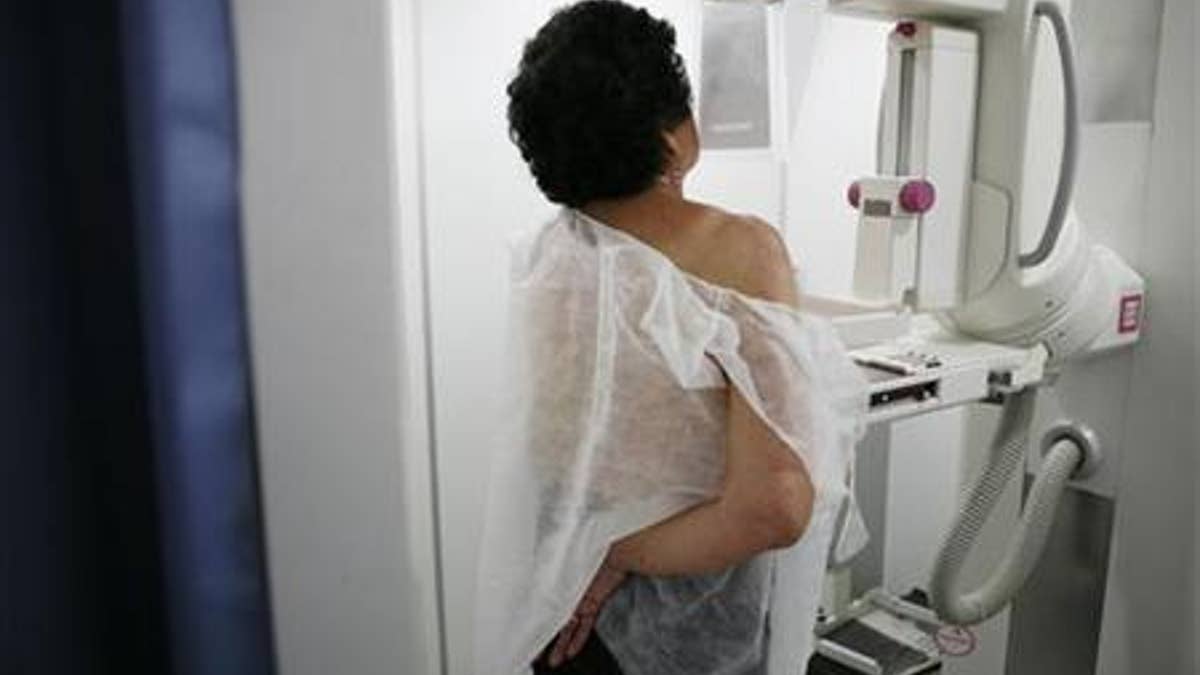
REUTERS/Enrique Castro-Mendivil
New research suggests that starting breast cancer screening at age 40 might be worthwhile for some women who have a higher-than-average risk of the disease, for example because their mother had cancer.
Researchers and cancer groups don't all agree on when women should begin getting regular mammograms, or how often they should be screened.
According to the United States Preventive Services Task Force (USPSTF), a federally-funded panel, evidence supports screening average-risk women age 50 to 74 every other year -- but women can decide with their doctors to start earlier based how they weigh screening's risks and benefits.
One in eight U.S. women will developed invasive breast cancer at some point, according to estimates, but less than a quarter of them will die from it.
Mammograms have been shown to help detect tumors early while they're easier to treat, but they also have their downsides. So-called false positives are common and can lead to anxiety, more-invasive testing and even unnecessary treatment, as can over-diagnosis -- when women are treated for small, slow-growing cancers that never would have ended up causing any symptoms.
Screening tests also deliver a small dose of radiation which itself can slightly raise long-term cancer risks.
Two new reports, published Monday in the Annals of Internal Medicine, suggest those possible harms may be worth it for a group of women in their 40s who are at higher risk of breast cancer to begin with.
In one analysis, researchers led by Dr. Heidi Nelson of Oregon Health & Science University in Portland reviewed 66 studies that determined women's chances of getting breast cancer based on their family history, weight, drinking and smoking habits and whether they had ever given birth or breastfed.
They found having a mom or sister with breast cancer or having very dense breasts, in particular, were each linked to a doubling of a woman's likelihood of getting cancer.
Women whose more distant relatives had breast cancer, or those who had kids after age 30 or not at all, also had a slightly increased risk of cancer.
Being aware of those risks factors may help doctors and patients create a more personalized screening strategy, Nelson and her colleagues concluded.
Another study, based on modeling of screening risks and benefits for different women, follows the same logic.
Researchers found that biennial screening for women in their 40s who have twice the average breast cancer risk because of family history and breast density has the same balance of false-positive risks and life-extending benefits as screening women age 50 to 74, as recommended by the USPSTF.
That analysis was led by Nicolien van Ravesteyn from Erasmus Medical Center in Rotterdam, the Netherlands. Some researchers, including Nelson and van Ravesteyn, worked on both studies.
Making screening decisions based on a woman's individual cancer risk "has the potential to save more lives than our current practice," Dr. Otis Brawley, Chief Medical Officer at the American Cancer Society, wrote in a commentary accompanying the new reports.
"Risk-based screening can refocus efforts onto the women who are most likely to benefit from screening."
Brawley wrote that in the future, guidelines based on when to start screening and how often mammograms should be done will be more tailored to individuals and their varying cancer risks.
"Ultimately," he concluded, "the preferences of individual women, recognizing the potential for harm and benefit, should be respected."








































